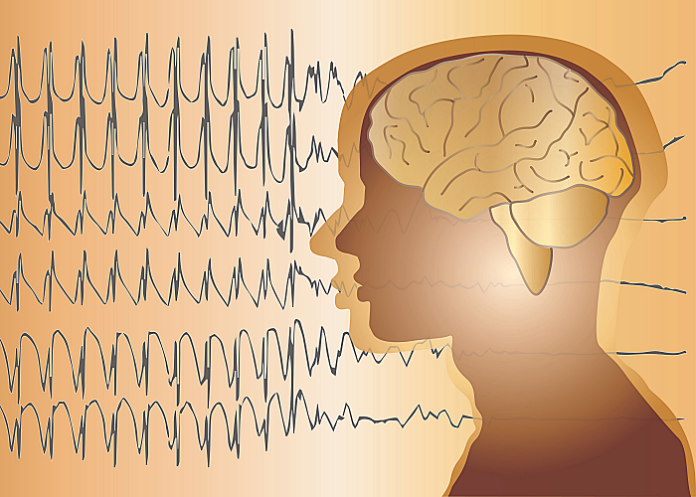Excess mortality is particularly pronounced among people with epilepsy and mental disorders, shows research from Aarhus University in Denmark.
The study shows that people with epilepsy die significantly earlier than people without – on average they live 10-12 years less.
“The significantly reduced life expectancy is found both in people who develop epilepsy as a result of an underlying condition, such as brain cancer or stroke, and in those who develop epilepsy without an obvious underlying cause,” said Julie Werenberg Dreier, senior researcher at the National Centre for Register-based Research at Aarhus University and one of the researchers behind the study.
Wide range of causes of death
The average reduction in life expectancy was 12 years for men with epilepsy and 11 years for women. Excess mortality is particularly pronounced among people with epilepsy and mental disorders, where life expectancy was on average reduced by up to 16 years.
“We discovered that the reduced life expectancy for people with epilepsy was related to a wide range of causes of death, which don’t just include the neurological, but also cardiovascular diseases, psychiatric disorders, alcohol related conditions, accidents and suicide,” said Jakob Christensen, clinical associate professor at Aarhus University and consultant at the Department of Neurology at Aarhus University Hospital, and one of the authors of the study.
The study used the Danish healthcare registers to follow almost 6m Danes, including more than 130,000 people with epilepsy.
“This has enabled detailed analyses of a range of different causes of death and, for the first time, we’ve been able to estimate the number of years lost due to individual causes of death in people with epilepsy. This is important information as it can be used to target preventive efforts to reduce the mortality gap we see in people with epilepsy,” said Dreier.
Mortality needs to be reduced
The study, published in the journal Brain, explains that the mortality rate among people with epilepsy is due to a range of conditions that cut across virtually all medical specialities. There is therefore a need for a collective effort to reduce mortality.
“The alarming results provide important knowledge for all healthcare professionals who, in one way or another, come into contact with people with epilepsy – also when prioritising and allocating resources in the healthcare system. The results clearly show how serious a disease epilepsy can be, and the findings of the study should be used in the prioritisation and planning of preventive measures,” said Christensen, adding that the results confirm the tendencies shown in a few smaller studies that have estimated reduction in life expectancy in people with epilepsy.
“The study should be followed up by additional research, for example into the questions of how medical treatment and recurring seizures affect life expectancy.”
Study details
Cause-specific mortality and life years lost in people with epilepsy: a Danish cohort study
Julie Werenberg Dreier, Thomas Munk Lauersen, Torbjörn Tomson, Oleguer Plana-Ripoll, Jakob Christensen.
Published in Brain on 2 March 2022
Abstract
Mortality rates are 2-3 times higher in people with epilepsy than in the general population. This study aimed to quantify how this increased mortality translates into reduced life expectancy and to identify the underlying causes of deaths, thereby offering suggestions for how to reduce mortality associated with epilepsy.
In this population-based cohort study, we included all individuals aged 0-94 years who were living in Denmark between 2000 and 2015. Using the nationwide registers, we identified persons diagnosed with epilepsy and estimated the excess of life years lost due to 13 overall and 9 specific causes of death.
Among 6,022,160 persons, we identified 129,598 persons with epilepsy (52.6% males), with a mean age of epilepsy onset of 36.5 years (standard deviation = 26.3 years). During the 16 years of follow-up, 851,087 individuals died, and of these 36,923 had been diagnosed with epilepsy. The average reduction in life expectancy in persons with epilepsy was 11.84 years in males (95% confidence interval: 11.66-12.00) and 10.91 years in females (95% confidence interval: 10.70-11.11) compared to the general population. Life expectancy was reduced irrespective of epilepsy etiology (symptomatic approximately 14 years; idiopathic approximately 8-10 years), and in particular in persons with epilepsy and psychiatric comorbidity (approximately 13-16 years). Excess mortality was evident across all causes of death including cardiovascular disorders, accidents, and suicide.
People with epilepsy experience a substantial reduction in lifespan that can only partly be explained by underlying conditions. Prevention of epilepsy-related deaths should focus on the consequences of psychiatric comorbidity and on modifiable risk factors associated with preventable causes of death such as accidents, neurological and cardiovascular disorders.
See more from MedicalBrief archives:
Childhood-onset epilepsy may speed brain ageing by 10 years — Finnish study
Wristwatch monitoring device accurately predicts epileptic seizures
Epilepsy: Seizures not forecastable as expected
New epilepsy seizure-detecting device to cut nocturnal fatalities
Warnings on side effects of epilepsy drug came 40 years too late

